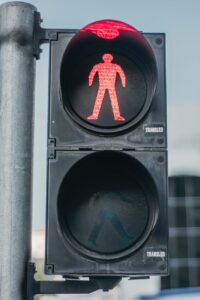(There is no number before the title of this blog. Therefore, it is not part of a topic series. It stands alone.)
We’ve all been trained to think with lots of “should” statements. When it comes to an ecclesia meeting, the thoughts we have that involve the word “should” end up actually helping us deconstruct our previous programming–if we look at it objectively. If we can catch the “should” in our thoughts and take it captive, we can stop a line of dominoes from being triggered. After our last meeting, I texted Bee and asked her how she felt about the meeting. She answered like this:
Bree: Hi Polly! I had mixed feelings about it. On the one hand, I was glad everyone got to share about where they were at, and be vulnerable so we could get to know each other better, but I was disappointed that we didn’t pray more for each other or minister to each other, especially Tom because he was being so vulnerable. Obviously governing and engaging God is an important part of what we are called to do, but I feel that it is equally–if not more important right now–that we build a foundation on which to do that, especially since a few are still breaking through into seeing in the spirit. How did you feel about it?
Polly: I see your heart there and want to encourage you. Let me encourage you to be free to ask a question next time. Ask the person what they want. Let them tell you. I’m grateful for you, Bree.
Bree: Thanks, but not sure what you mean by “ask the person,” though.
Polly: If you think Tom should be prayed for (for example) ask, “Tom, do you want prayer for that?”
Bree: Yes, I feel free to do that in general, but somehow what he was sharing turned into another conversation which led to another and another, so it was over before I even thought of it. I would love to incorporate that next time though, somehow. I love that we are starting to have more of an emphasis on family now.
Polly: That’s what’s meant by organic. Our perception about how the meeting should or shouldn’t go is formed from real information we receive from loving the people (preferring one another in love) not our own idea of what should happen based upon anything else. We all have been trained in different ways by “shoulds.”
Polly: For the record, Tom did not want prayer. He kept reporting the time because he wanted to use the time we had to sit in the presence of God together as Robert was wanting to do. Not sure you knew that was going on at our end of the room. That is the goal. If–and that’s an important word, if–God has us legislate from there, we do. But His presence is much better than legislating. Our men who ares so very hungry to deal with the many wrong things in the world do have to face that truth at some point. And God will teach every person; He says He will.
Bree: Thank you for clarifying that. I am used to a little more structure so it honestly felt a little chaotic in there to me until we brought in the music, but it helps me to know how it works.
Polly: Bree, you have a good gift of sensing things. So if you’re sensing chaotic things, I encourage you to identify that and address it first silently sending it to wherever Jesus would have it go. Declare peace. Not as the world gives, but heaven’s peace.
Still Polly: If it still continues, you might say that to the group, “I sense chaotic crap.” Or however you want to describe it. That may be the first step the Holy Spirit would have us take. And that takes just three minutes or so. If we don’t deal with it, we allow it to stay. Then it can mess with people. If we’re wrong, we still agreed on that standard and it takes two or three to establish a thing: chaos is not allowed here. We win, either way.
Bree: Love it, Polly! “I sense chaotic crap.” I will remember that. Ha ha. We are coming together as a strong Ecclesia according to our design.
Polly: We need to share this with the group.
Bree: Sure, okay.

Can you see the line of dominoes triggered? Deconstructing our thought processes reveals how it all begins. Meeting operation mode: ask simple, basic questions if information is left out. Love and respect. Ask the Father. You have a voice. It may have been stifled in the past, but take it back with forgiveness for all who stifled it, including yourself. Unlimited forgiveness makes us innocent. Father, reset our minds to the simple, blood-bought, innocent place You desired and paid for–to know and be known. To prefer one another in love. To yield all of our “doings” to a state of rest in You. We reject what the world has trained us to think. We put on Christ!
From that position or status of blood-bought innocence, receive your dignity back as a son, seated in authority in heaven next to Jesus. To step back into innocence is to step out of “shoulds.”
If we are innocent and we detect chaos or any other thing, (1) send it away to where Jesus would have it go. If it continues, (2) say it out loud in the meeting and we’ll agree out loud to send it away. If we sense it lingers, (3) we ask what is its legal right is to still be there. That’s because we are being … sons. Our position above it is natural and freely functioning. Perfect love casts out fear.
Let’s say there is an accusation against us. Perhaps it’s chaotic thoughts. We responsibly repent for that because we know we have access to the mind of Christ. If there is legal right to accuse us, the Bible says to agree with your accuser quickly. With our agreement to the accusation, we’ve freed the blood of Jesus to pay for it. A resolve comes quickly into our minds that agrees to accept the revelation that heaven will bring of how we’ve given it a foothold in our life. That is a doorway to freedom which we love. If there’s any pride that would cause us to reject the accusation about ourselves, we will repent of pride, too. It could be in our bloodline. See how it works? Taking thoughts captive is a win for individuals and a win for the group.
This is how an ecclesia starts to wield authority and power. It starts within each one of us, and as we are faithful with that, we become faithful with more.
Better is the slow to anger than the mighty, and the ruler over his spirit than he who is taking a city. (Proverbs 16:32)


Wow super powerful ! Honesty is great medicine.
Amen